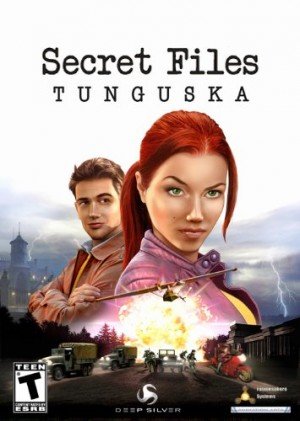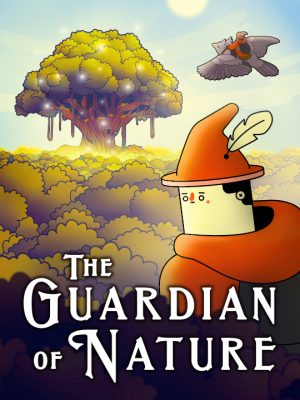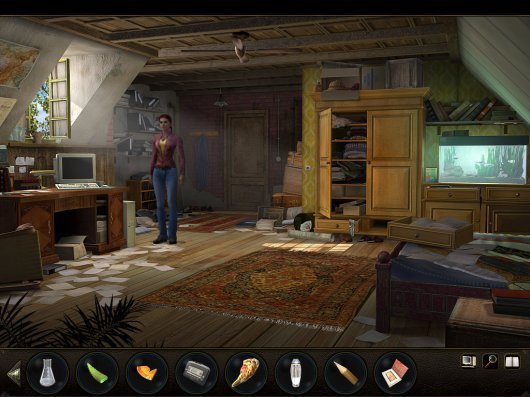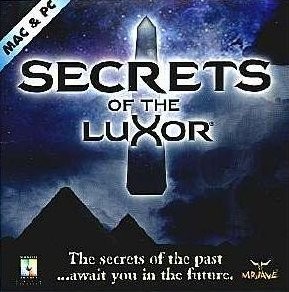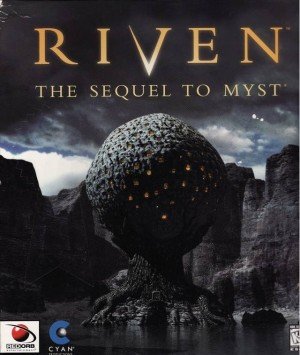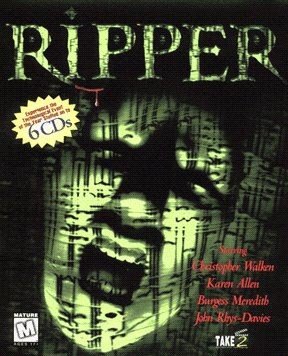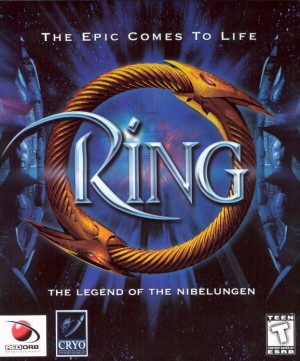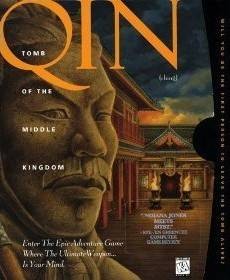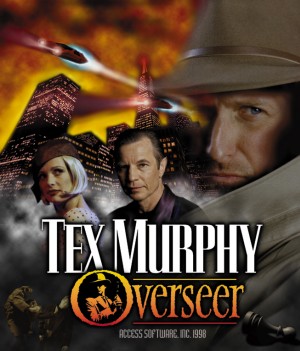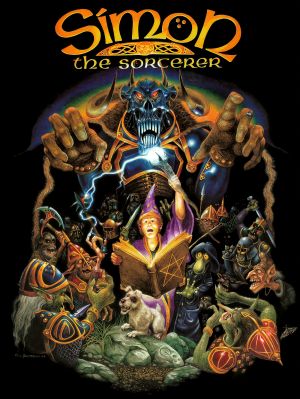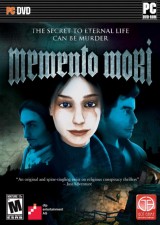Review for Secret Files: Tunguska
Imagine an alternate reality where Revolution had not decided in 2003 that point-and-click was dead... Instead of getting Broken Sword 3 as we've come to know it, the result might very well have been Secret Files: Tunguska. It has the two young heroes, the cohorts of secret factions, the mix of realism and supernatural, the patchwork of locations to visit -- even the unexpectedly out-of-place humour surfaces from time to time. Obviously, the situation is actually a bit more complicated, and there is more to say about Secret Files: Tunguska than that, but the comparison is not entirely without merit.
At the heart of the plot is a real historical event: a huge explosion that happened in 1908 in the Tunguska region of Siberia, an explosion far more powerful than the Hiroshima bomb that was felt all over Russia. Most of the witnesses having been killed by the blast, the cause of the explosion remains mysterious: a meteorite, a secret weapon, the crash of an alien spacecraft...? German developers Fusionsphere decided on their explanation (hint: it's probably not the boring, rational one), and decided to build a game around it. It starts in current times with one Vladimir Kalenkov, a Russian scientist now living in Berlin, being visited at work by a mysterious hooded figure, and subsequently disappearing with his office left in shambles. His daughter Nina decides to take the matter into her own hands, and sets on an investigation that will lead her all over the world, including the Tunguska region. She will receive the help of Max Gruber, a scientist who works next to her father's office and decides to lend a hand.
If you're like me, you're probably getting fed up with all the April Ryans, the Kate Walkers, the Zoë Castillos, and all those other outwardly strong, yet inwardly vulnerable young women we've seen so much of lately. Well, the good news is that Nina doesn't have such a personality. The bad news is that hers seems to be limited to a passion for radiators. And this is not only true of the characters: everything in the game feels very archetypal. There's of course nothing fundamentally wrong with that, and many great games have been built around archetypes, but those titles explored and linked them in a way that managed to imbue such archetypes with freshness -- something I feel Secret Files: Tunguska fails to do. Sure, among the large variety of plot elements (from the old wise man in the forest to the evil global corporation) and settings (from sneaking into a military base to finding secret passages in a spooky old castle), there's bound to be a little something (or more) for everyone. Sure, the story remains fairly enjoyable and a reasonable incentive to keep playing. But adding more depth to these elements, giving them a life of their own, would have gone a long way toward not making the game feel like a long string of situations we've seen dozens of times before in previous adventures.
On the puzzle front, the game turns away from the now-widespread trend towards a lower quantity and difficulty of challenges, and provides a vast amount of inventory puzzles. Unfortunately, these also suffer from a lack of relevance, seeming to be there only for the player's sake rather than because the plot or settings demand it. Just because many (myself included) are glad to see them, it doesn't mean they should go running around town naked, shouting at the top of their voice "woohoo, I'm a puzzle!" There is, after all, something to be said for the player slowly seeing through the veils of plot, unhurriedly removing the garments of characterisation, to finally touch the puzzle itself.
As it is, the suspension of disbelief is constantly threatened, the plot feeling like it's often twisted around arbitrarily to allow for more puzzles. It seems like every cheap excuse, be it bad luck or bad mood, has been called up when it comes time to introduce another brain teaser. Things that should be simple are always complicated; whenever you need to go through a door, you can be sure it's going to be either locked or blocked, and if that's not the case, then the handle will snap in your hand. And yet, while fate often seems overly hard on our heroes, the opposite excess sometimes happens. For instance, whenever murderous villains capture Nina (which seems to happen very frequently), they never harm her, choosing instead to lock her up in some unguarded room with all the items she'll need to escape.
Many adventure gaming conventions are followed to the letter, the first of those being: take everything that isn't nailed down, even if you don't know what it could be useful for. Nina is an incredible pack-rat, stuffing heaps of items in the pockets of her ultra-tight jeans, and regularly finding what she needs in the omnipresent (and all-too-convenient) trash cans and garbage heaps. And that's not a female trait, since Max does much of the same.
But sacrificing realism for the puzzles' sake can sometimes border on ridiculous, as happens at one point with Max. He is looking for a commonplace item, but instead of just buying it in a local shop as any sensible person would do, he instead creates a situation which is likely to cause a lethal accident. Thankfully, nobody gets killed, and the results happen to land the needed item into Max's inventory. This is pointlessly contrived, but worse still is that, when something happens, Max worriedly hopes that nobody got hurt, and says that he'd never forgive himself if that were the case. Which begs to ask: why then did he create such a dangerous situation? And this is but an example; while our two heroes mostly seem to be do-gooders, they keep wronging innocent people whenever it is necessary for them to reach their goals -- or rather whenever the puzzle design dictates it is so. If it does actually make sense for their characters to behave like that, it is never made clear.
The developers seem to have been quite aware of the problem, even letting the characters refer to the absurdity of certain situations, but apparently just decided to shrug it off. Some might be tempted to let them get away with it, saying "well, everyone else does it anyway", but that would not only be untrue, but also does not become a team which is capable of far better, as certain parts of the game show. The puzzles themselves are a mixed lot. There are several memorable ones, and only a couple are glaringly bad. But, as in the example above, quite a few will probably feel too contrived, with solutions you very well know would make no sense outside the magic kingdom of AdventureLand. Solving these feels less like thinking of a reasonable solution to the problem at hand than figuring out what to do with the items and hotspots the game arbitrarily decides to provide you with, which ultimately feels less satisfying to me. Thankfully, most of the annoyances you usually face in other games when solving puzzles are absent, in great part thanks to the game's interface.
Ah, the interface! You know, when some interface quirk makes me angry at a game's developers (which, admittedly, happens rather frequently), one of the questions I tend to ask aloud is, "Do these people actually play games from time to time?" After fiddling for a couple of minutes with Secret Files: Tunguska, it is obvious that this time, the answer is a resounding yes. This is a game made by people who've been through the unnecessary frustration caused by all the bad interfaces players have seen so much of for years, and who decided not to inflict anything similar on their customers.
Everything in the game is controlled with the mouse. You can skip conversations and cutscenes with a single click. Double-clicking on an exit immediately transports you to the next room, which would be welcome in any case, and even more so when some backtracking is necessary, as is the case here. Even better, clicking a special button reveals all the hotspots and exits on the screen, finally making pixel-hunting a thing of the past. It's a feature I first encountered ages ago in Simon the Sorcerer 2, and then thought would become a standard, but unfortunately never saw again until now. Interacting with the environment is extremely intuitive, with little symbols appearing next to the pointer to show what can be done by clicking the left or right buttons. A potential drawback is that seeing what hotspot an item can be used on just requires hovering the cursor over it, without having to click (and likewise for combining items), which might make it a bit too tempting to try everything on everything instead of thinking your way through.
Still, the interface is pretty much what a perfect interface should be: completely unobtrusive and predictable, letting you focus on the story and gameplay. Another nice touch, which also isn't anything new but welcome nonetheless, is the presence of a diary where the main elements of the plot are recorded. This diary is also used as a hint system, providing optional clues for a few of the puzzles (basically, those which are not solved by combining items, such as finding passwords). I found this feature rather useless, since it only covers a few puzzles, and only provides a single hint for each one, which can be anything from hopelessly vague to the full solution.
The graphics received at least as much polish as the interface. The designers chose to go for a realistic graphic style with extremely detailed backgrounds, and the atmosphere of the varied settings is subtly reflected in the colours and lighting. The real-time 3D characters manage to blend very well into the backgrounds, thanks to quality modelling and a high resolution, and the animation mostly looks realistic. The facial animations are supposed to be adapted to the lines spoken, but I must confess that I didn't really notice it, since the conversations tend not to be shown in close-ups. The cutscenes are also a delight to watch, some of them exhibiting a very cinematic feel. Music is used sparsely, only kicking in when necessary and often leaving room for ambient sounds. It is not especially memorable, but does its job appropriately.
It is unfortunate that the developers' overall dedication was not entirely shared by the team in charge of the English version. The voice-overs are mostly good, though some of the minor characters tend to sound a bit flat. Nina and Max are well acted, although Nina's voice might take some time getting used to (I'm not sure how a witty Berliner of Russian descent is supposed to sound when dubbed in English, but probably not like a valley girl, as is the case here). The recording quality is disappointing and shows a clear lack of attention to detail, with frequent discrepancies in the volume and reverberation effects, even between two consecutive lines. But some good choices were made too. One thing I've always hated in games and movies is fake accents, supposed to convey that the conversation is actually taking place in a foreign tongue. That's a pitfall that Secret Files: Tunguska thankfully avoids, giving American accents to all characters, whether they're German, Russian or even Irish.
The translation from German went rather smoothly, though again a bit more polish would have been welcome; some lines clearly seem to have been translated out of context, and some puns might have been taken too literally. But most of the humour manages to get across, and our two heroes can use their wits for more than cracking safes open, adding some refreshing lightness to all those plots and conspiracies -- though I thought that their awareness of actually being inside a computer game went a bit overboard for a story that's not comedic in nature. Still, this is a minor quibble, and Tunguska certainly isn't the first game to mix a rather serious plot with some uncharacteristic jokes -- here again, the similarity with Broken Sword seems inescapable. I found it a particularly nice touch that the characters usually explain wittily why you can't perform certain actions, instead of relying on some standard line. Once again I felt that the developers must be players too, having undergone the same frustration as I do when hearing such overused lines, and deciding to do something more clever in their own game. Even more than the plot or shiny graphics, it's little touches like these that really made me go on playing.
On the whole, the best description of Secret Files: Tunguska is that it's Fusionsphere's first adventure game. Like an apprentice's work, it stays too close to the master's, successfully emulating much of what made that good, but with a lack of inventiveness that doesn't allow it to be truly distinctive. And like an apprentice's work, it exhibits both the clumsiness of the inexperienced and the meticulousness of the studious. In short, while it is definitely not a masterpiece, it is a promising debut. I shall eagerly await Fusionsphere's next adventure game, hoping that they will retain their qualities while finding a voice of their own.
WHERE CAN I DOWNLOAD Secret Files: Tunguska
Secret Files: Tunguska is available at:
- GOG -90%
- HumbleBundle
- Amazon


